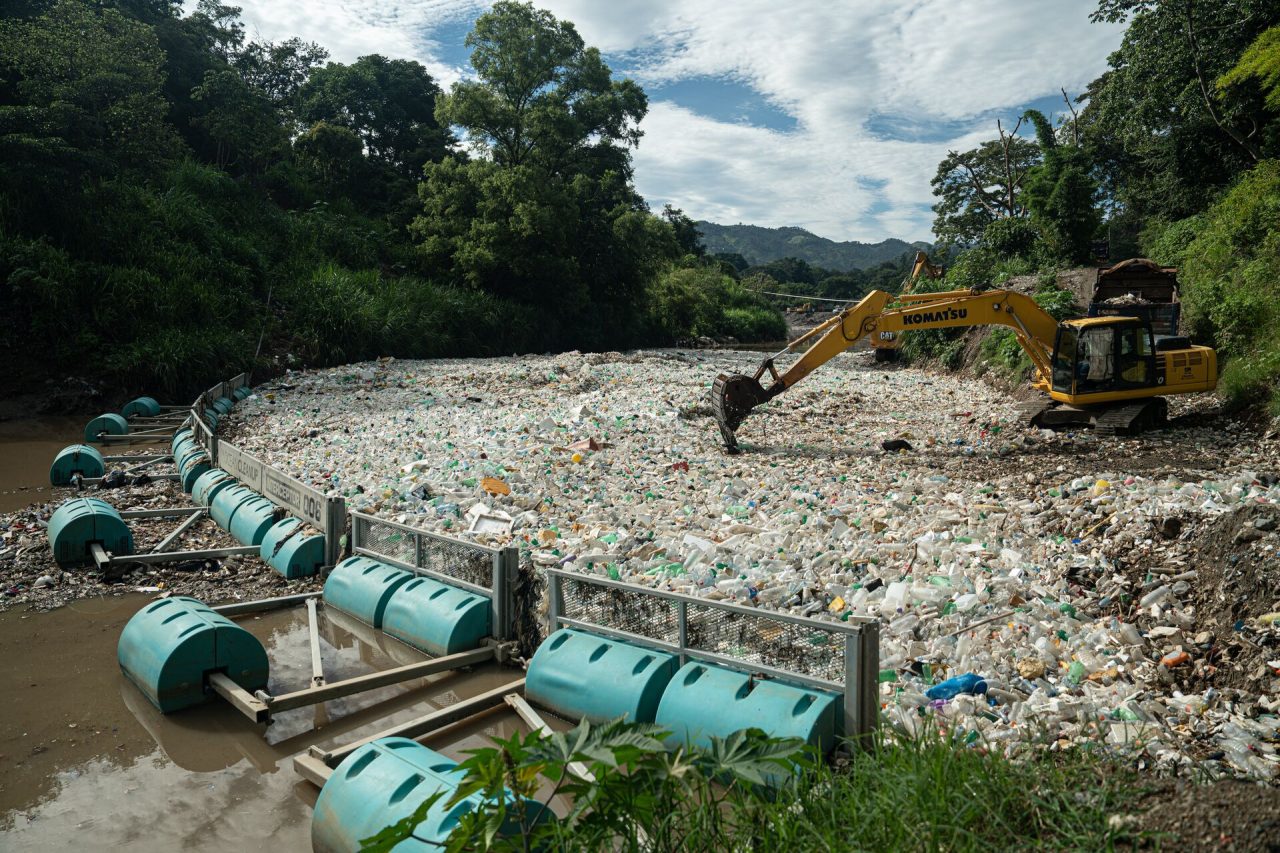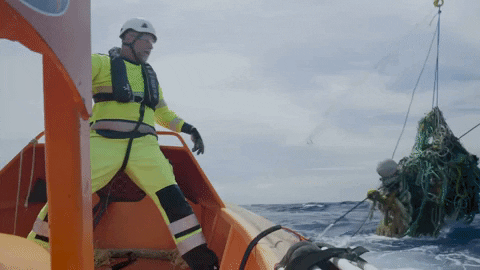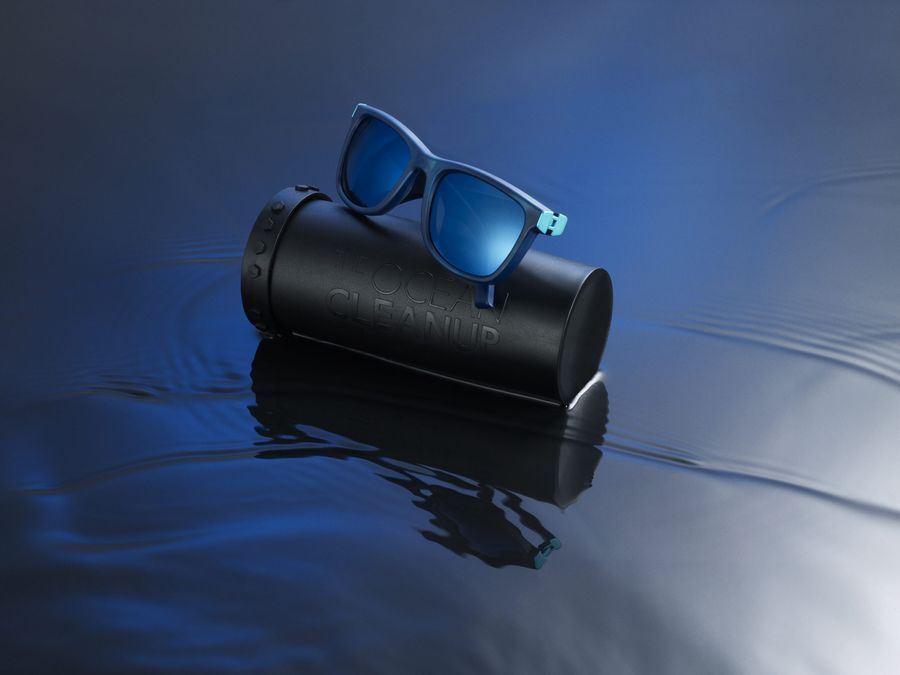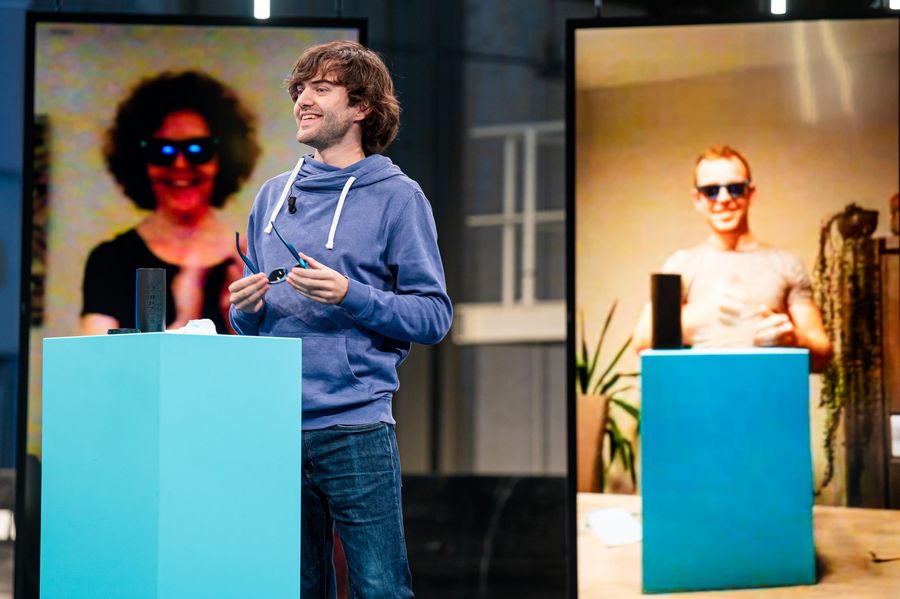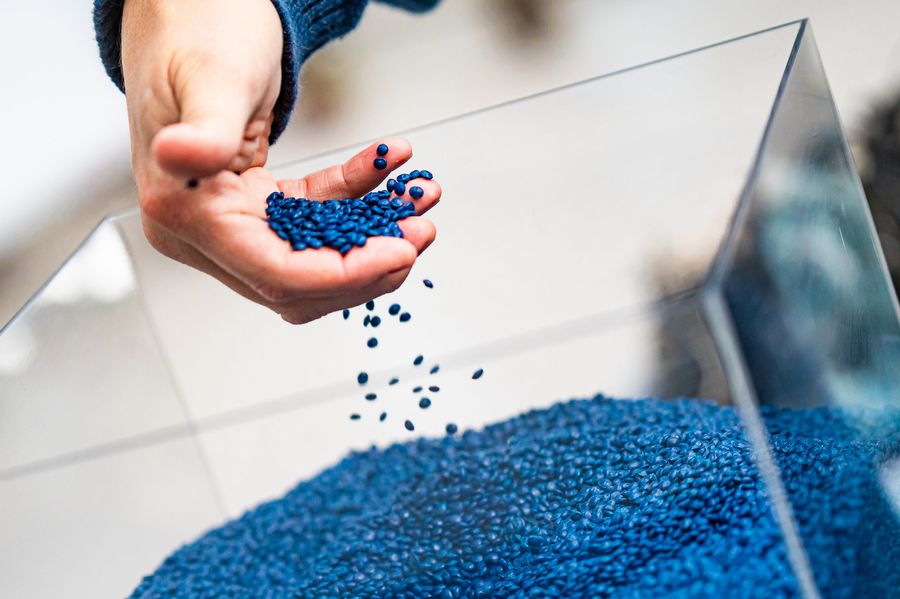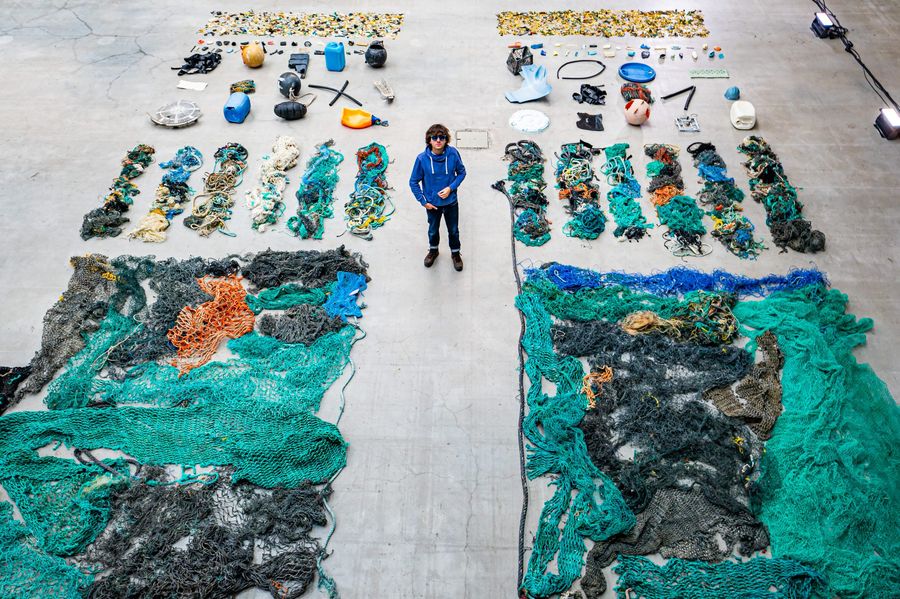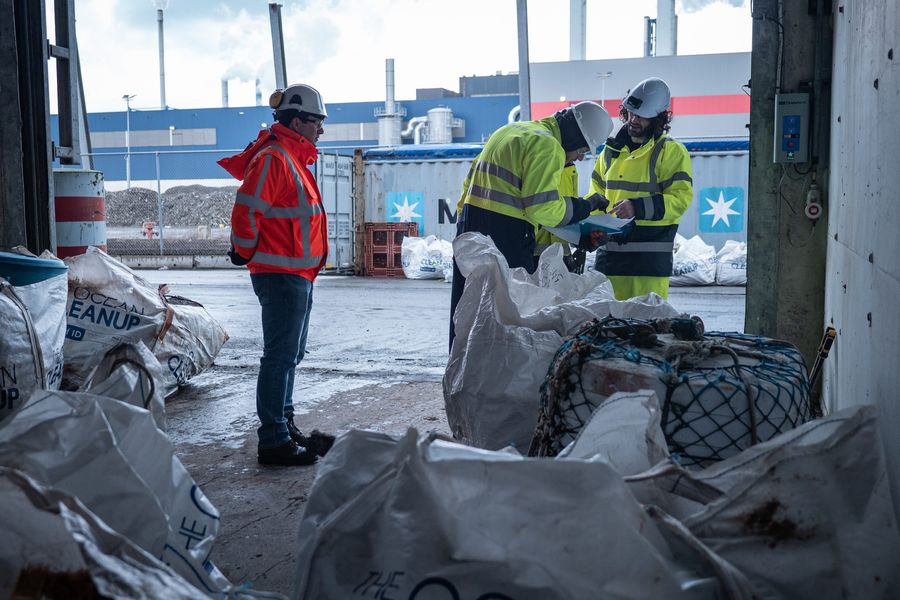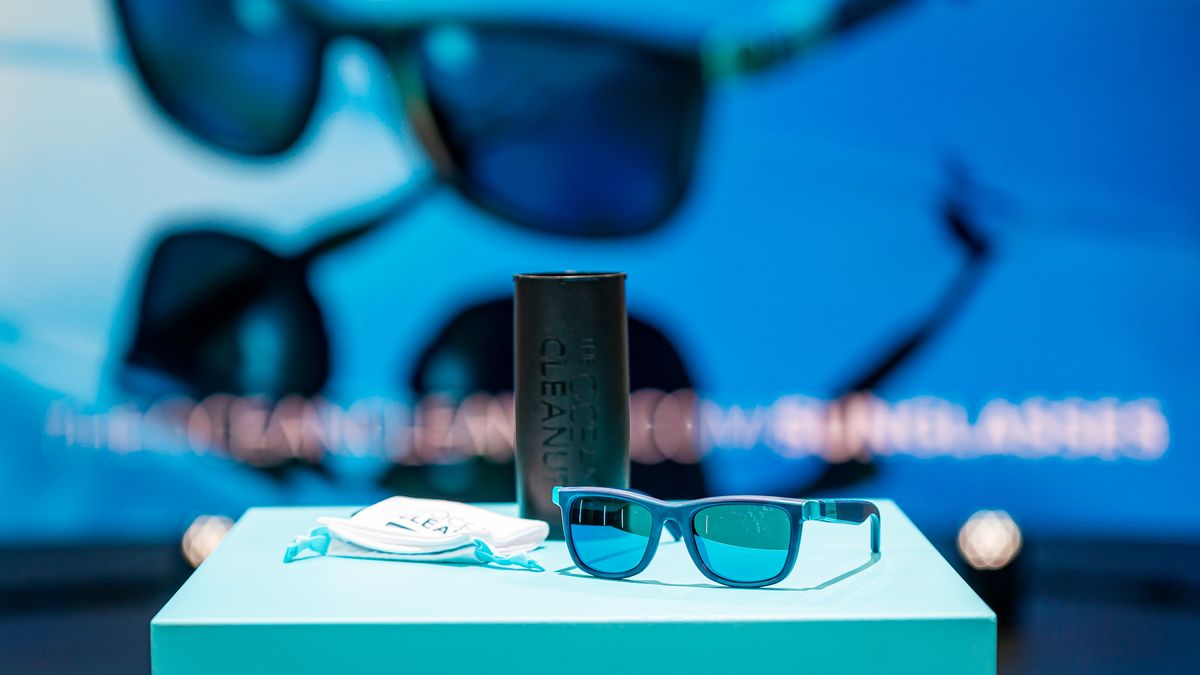
Recycled The First Plastic Catch
Since the initial pitch of The Ocean Cleanup, before it was even The Ocean Cleanup, there has always been a plan to do something meaningful with the plastic we remove from the ocean. By turning the catch into useful, durable goods, we can turn the problem into a solution. And, by getting a product made out of plastic from the Great Pacific Garbage Patch, supporters can help fund the cleanup of more ocean plastic – turning the pollution of yesterday into the cleanup of tomorrow. On October 24th, 2020, we launched our first product: The Ocean Cleanup sunglasses.
In 2019, we caught our first ocean plastic with one of our pilot ocean systems, System 001/B. This system was a small-scale, modular system that we deployed in the Great Pacific Garbage Patch to test various design alterations aimed at addressing our two main challenges: durability and plastic retention. During this test campaign, we managed to capture plastics of a wide size range in the system. While we were out at sea, we opportunistically also retrieved derelict fishing nets, or ghost nets, when our crew noticed them drifting by.
RECYCLING THE PLASTIC
Recycling ocean plastic is not an easy feat. Some of it has been circulating in the ocean for decades and is highly degraded by constant exposure to UV radiation and the mechanical impact of the waves. Since our ambition is to valorize as much of the catch as possible to help fund continued cleanup operations, we were up for the challenge. For this first product, we chose to utilize the ghost nets because they were better suited to make the sunglasses. To ensure that the end result was a safe, sturdy, and responsible product, we worked with many industry experts all along the production chain when transforming this trash into a treasure.
VERIFYING THE PLASTIC
As of today, the market is saturated with “ocean” plastic products – a lot of which are processed into single-use packaging, but there is little traceability and, in some cases, there is little plastic collected from the ocean in the products. In fact, most claims of ocean plastic origin are not backed by traceable and verified data, so there is no way to know for sure if the product is what it says it is. Therefore, to stay consistent with our commitment to transparency, we wanted to ensure traceability all the way back to the point of catch; so, we explored our options and determined that a third-party expert would be the best way to go. DNV created a standard that we aim to follow also for our future ocean catches, and encourage others to use as well.
FIRST PRODUCT – SUNGLASSES
We chose to make timeless sunglasses as our first durable, useful product. Since we’re dependent on word-of-mouth to spread our mission, we hope that by making something that is often carried around, they can also help spread awareness. To help supporters understand the impact of their contribution, we calculated that each pair of sunglasses will help us clean up 24 football fields worth of ocean.

GOING FORWARD
Our first product is a proof of concept that ocean plastic can be recycled and turned into high-quality and durable products. With this, we have established a new funding model for the continuation of our mission. In tandem with the launch of our product, we began exploring possible recycling methods and product applications for the rigid plastics collected in the patch, as well as preparing to handle the incoming plastic from System 002, deployed in July 2021. For future products, we are considering collaborating with globally established product partners. This will allow us to operate at scale and allows the plastic to be turned into high-quality products in a variety of categories, to fund the continuation of the cleanup.
